- Home
- Sharon Sala
Remember Me Page 4
Remember Me Read online
Page 4
Dawson took the coffee Ramsey offered him, and led Clay to a quieter area.
“Thought you might like to know that there was a big midtown pile-up around two o’clock this afternoon. A Greyhound bus collided with a tractor-trailer rig and a couple of cars, one of which was a yellow cab.”
Clay’s jaw set. My God…Frankie’s warning!
Dawson chose his words carefully. “We don’t know for sure if it was your wife, but when the cabdriver came to, he was missing his fare. He said she was a pretty young woman with dark, shoulder-length hair.”
Clay’s eyes widened. “You think it was Francesca?”
Dawson shrugged. “Maybe. But if it was your wife, she was pretty damned lucky. Everyone else involved in the accident either went straight to the hospital or was taken to the morgue.”
“Jesus,” Clay muttered. He dropped into a nearby chair and put his head in his hands.
And then something occurred to him. Something so obvious, he wondered if the detectives had already followed it up.
“Did anyone ask the cabdriver where he picked the woman up?”
Ramsey nodded. “At the bus station. Said he almost ran her over as she came running out of the terminal. Said when she got in, she was shaking, but he attributed it to the rain. Then, he said, she kept looking behind them, as if someone might be following.”
“What do we do now?” Clay asked, standing again.
Dawson shrugged. “There’s nothing to do. She was missing. Now she’s back. Of course, if she volunteers any information, or begins to remember things, let us know. We’ll check it out for you.”
Clay stared. “Just like that?”
“Look, Mr. LeGrand, there’s nothing else we can do for you. It’s not a crime to run away from home.”
“That’s not exactly the way you looked at it two years ago,” Clay snapped, and then turned and left them standing.
He stalked back to Frankie’s room, so angry he couldn’t think what to do next.
The doctor was gone. Except for the intermittent beeping of monitors, the room was silent. His gaze slid to Francesca’s face. She hadn’t moved since she’d been admitted. His belly knotted. What if she never woke up?
Clay dropped into a chair beside her bed and laid his hand over hers. At his touch, her fingers jerked spasmodically. He couldn’t tell if she was resisting his touch or reaching for him. He sighed, his heart heavy as he let her go. At once her body stilled, and he stood up and strode to the window. Even unconscious, it seemed as if she didn’t want him anymore.
“Clay?”
He spun. His mother was standing in the doorway.
“Mom, you didn’t have to come back.”
Betty LeGrand shrugged and held up a small overnight bag. “I thought you might need these.”
He motioned for her to come in.
“How is she?” Betty asked.
“The same.”
“Did I see her doctor in the hall?”
Clay nodded.
Betty set the bag down and took off her coat, draping it across a chair as she moved to the window where Clay was standing.
“So…are you going to volunteer what he said, or do I have to drag it out of you piece by piece?”
Clay sighed. “They said her memory loss is in keeping with the injury she suffered and that, hopefully, it will return in time. Also, she hadn’t overdosed, and she’s not suffering any sort of withdrawal. She has no illegal substances in her body. The only thing they found were slight traces of sedatives.”
Betty pursed her lips, and turned toward the bed, gazing thoughtfully at Frankie.
“That doesn’t surprise me,” she said.
Guilt hit Clay hard. His voice deepened with bitterness. “Tell me something, Mom. I’m her husband. Why didn’t I have as much faith in her as you did?”
Betty turned back to Clay. She hurt for her son, but she also hurt for Francesca.
“You know, my mother used to say that the deeper the love, the greater the hurt when things go wrong. You’ve been through hell, Clay. I would think it would be hard to be objective when you’ve been suspected of murder.”
He moved to Francesca’s bedside. “You know what’s even worse?”
Betty followed, sliding her hand up the middle of her son’s back, giving him a comforting pat.
“No, what?”
Clay swallowed several times before he could spit out the words. “I don’t know how I feel about her anymore.”
Betty closed her eyes briefly, struggling to find the right thing to say.
“That’s understandable,” she finally said. “But if the doctors are right, and her memory loss is for real, then think how Frankie will feel. In her mind, the last two years are nonexistent. Theoretically, she’s still a newlywed. That means her heart is still yours, whether you want her or not.”
Clay blanched. “I didn’t mean I don’t love her. I just don’t know if I can trust her again.”
Betty shrugged. “You won’t know until you try.”
Clay’s shoulders slumped. “Okay, Mom. I get it.”
Betty ached for her son. For the whole situation. This was a nightmare, and what she had to tell him was probably going to add to the confusion. She bit her lip, judging Clay’s mood against what she’d come to say.
“I went by your house before I came here,” she said.
Clay thought nothing of it. His mother had been coming and going there for months now without his permission.
“And?” he asked.
“I thought Frankie might need a few things. I forgot that her clothes were all packed away. It took me a while to find them.”
“Thanks,” Clay said.
“You’re welcome. But that’s not what I came to tell you.”
Something in his mother’s voice wasn’t right. He turned away from Frankie to stare his mother in the face.
“What aren’t you saying?”
Betty put her hand in the pocket of her slacks and pulled out a wad of money.
“This was in the dryer, along with a pair of designer slacks and a blouse that were not meant to be tumble-dried. I’m afraid the clothes were ruined. However, except for a few wrinkles, I think these came through quite nicely.”
Clay’s mouth dropped, and when his mother put the roll of bills in his hand, he felt like throwing up.
“My God,” he muttered, fingering the hundred-dollar bills as if they were covered in filth. “How much is there?”
“One thousand, five hundred and fifty dollars.”
He looked down in disbelief, his fingers curling spasmodically around the money.
“In the dryer?”
Betty nodded. “Two of the bills were still in the pocket of Frankie’s slacks. They probably fell out of a pocket when the dryer began to tumble.”
He dropped into a chair, still staring at the money. When he spoke, the sarcasm in his voice was impossible to miss.
“So. One of my nightmares about her was definitely false.”
“What nightmare would that be, son?”
“The one about her being brutalized and starving to death.”
“I’m sorry, Clay. I know this only adds to the confusion, but I think we shouldn’t jump to any more conclusions. The best thing to do is just wait and see what Frankie has to say for herself when she wakes up.”
Clay looked up. “It’s not what she says that’s the issue. It’s if I decide to believe her.”
Southern California
More than a day after the quake, the earth was still belching aftershocks, which hampered the efforts of the search and rescue teams. Going through the rubble of collapsed freeways and buildings was still the order of the day. Unfortunately, it was becoming easier to find the dead than the living. They were beginning to smell.
The more exclusive homes were often also the more isolated, and even though many reports had come in, searching them had taken a back seat to the mass devastation of the heavily populated areas. Rescue crews were rel
ying on reports from police helicopters regarding areas to search. And when a helicopter pilot had seen half of a house in one of the canyons below, they’d radioed for help.
Pete Daley had been part of the San Francisco search and rescue team for more than ten years. He was an old hand at disasters and thought he’d seen everything, yet when the driver of their van took a sudden right into a heavily wooded area, he frowned.
“Are you sure this is the right road?” Pete asked.
His partner, Charlie Swan, shrugged. “No, but it’s the only one here.”
Pete rolled his eyes. “Then why are we—”
Charlie pointed through the windshield of the ambulance to the hovering chopper just visible in the distance.
“He isn’t exactly leaving bread crumbs, but he’s been circling for more than five minutes now. I figure he’s over the spot.”
Pete looked a little abashed and then sighed. “I haven’t been paying attention, have I?” he asked.
“You do when it counts,” Charlie said. “Now grab your gear. We’re almost there.”
A few minutes later they arrived at what was left of a great mansion, parking well out of the way of any walls that might still be prone to collapse. They grabbed their bags as the searchers began unloading their dogs. A few minutes later, some of the team entered the house, while the others made their way down the canyon to the wing of the house that had shattered below.
Almost immediately, one of the dogs began to whine, then it moved toward a huge pile of rubble at the foot of the stairs.
“We’ve got something,” the handler yelled.
Searchers began clearing away debris and, moments later, uncovered a foot.
“Damn,” Pete muttered, then knelt, expecting to touch cold, lifeless skin. Although he was wearing surgical gloves, when his fingers encircled the man’s ankle, he felt warm, supple flesh.
“We got a live one!” he yelled. “Get this stuff off him fast.”
Piece by piece, the debris was removed, each time the searchers making certain that something else didn’t come crashing down upon him and finish the job.
“Look at that,” Charlie said, pointing to the fallen beams and a piece of the wall that had formed a small alcove above the injured man. “That’s what kept him alive.”
Pete began taking vitals, while Charlie applied a neck brace and checked for broken bones. Everything about the victim was faint, even the intermittent whisper of breath slipping from between his bloody lips.
“See if that television chopper is still around. We’ve got a hot one, and he’s not going to wait for Lifeflight!”
Within minutes, the injured man had been stabilized and strapped to a stretcher. A couple of workers began carrying him out to the lawn toward the waiting helicopter.
“I’ll fly in with the news crew and be back as soon as possible,” Pete said. “You go with the search dogs. There could be more survivors.”
Charlie nodded and headed back to the mansion at a jog.
Pete shaded his eyes as he hurried beside the stretcher. Suddenly the man began to moan.
“You’re okay, buddy,” Pete told him. “We’re going to take real good care of you.”
“Woman…find my woman.”
Pete frowned, then reached for his two-way. It crackled as he pressed the send button.
“Daley here,” he said. “The victim is asking about a woman. Be on the lookout for another body nearby.”
“Roger that,” a voice said, and the connection was broken.
The man’s eyelids fluttered, then he sighed and slipped into unconsciousness.
The whap-whap of the spinning helicopter blades soon made talking impossible, yet Pete felt obligated to give the man a last bit of hope.
“Hang on, buddy,” Pete yelled as they began loading him inside. “As soon as we get you to a hospital, they’ll fix you up real good.”
Then he crawled in, directing the position of the stretcher inside the chopper, before settling down on the floor beside him.
“Take her up!” Pete yelled, and grabbed on to the back of a seat as the chopper suddenly rocked.
“Sorry,” the pilot yelled. “Crosswinds.”
Pete rolled his eyes and said a quick prayer. Moments later, they were airborne. Aside from a periodic check of the IV they’d started, there was little he could do except study the injured man’s face.
He looked foreign, that much he could tell, but in L.A., that meant nothing. Black-winged eyebrows arched above deep-socketed eyes. The jut of his nose and the cut of his cheekbones bespoke what appeared to Pete to be a Middle Eastern heritage. Even though his skin was ashen and dust-covered, the even, toast-colored cast looked natural, rather than artificially tanned. Pete glanced back at the mansion, stunned by the sight of the devastation from the air, then shook his head in disbelief, amazed that the man was still alive.
“I’ll bet you’re one tough son of a bitch, aren’t you, buddy?” But the man didn’t answer.
A few minutes later, they began to descend. As they landed on the hospital roof, Pete made last-minute checks on the man’s vitals, making sure the nurses would have all the information they would need. Moments later, a trauma team met them at the door. Pete jumped out, helping as they transferred the stretcher to a gurney.
Pete began relating vitals as they scooted the stretcher in place. As he stepped aside, one of the nurses got a clear view of his face.
“Oh my gosh! That’s Pharaoh Carn!”
There was a moment of stunned silence as everyone stared at their patient’s face; then they began to run, pulling the stretcher as they went. Saving his life was uppermost in their minds. It didn’t matter what he did for a living, but in L.A., Pharaoh Carn’s ties to the mob were well-known.
Pete went as far as the door, then watched as the trauma team disappeared with the victim.
All the way back to the site of the search, he kept wondering about the woman Pharaoh Carn had lost. She must have been important to the man. He’d asked about her with his last conscious breaths. He wondered if they had found her. He wondered if she was dead.
Four
During the last day and a half, Clay had gone home only once, for a shower and a change of clothes. His parents had offered to take turns sitting with Frankie while he got some rest, but he’d refused. He was afraid. Afraid that if he left her, even for a minute, she would disappear again. So he slept in fits and snatches in a chair by her bed, and during the times that he was awake, he hadn’t been able to take his eyes from her face.
She looked the same—and yet there were differences that ate at him. Her hair was shorter than it had been. He tried to picture her going about her life without him. Shopping for clothes and food. Getting haircuts and watching movies that made her cry. It seemed obscene that she had remained the same while he’d died inside.
But there were other differences besides the obvious. Her face was slimmer, her skin paler. There was a set to her mouth that hadn’t been there before, as well as faint frown lines between her eyebrows. She had the look of a woman who had suffered.
And besides the mystery of the money, there was now the tattoo.
They hadn’t found it until yesterday morning, when the nurses were changing the linens on Frankie’s bed. As they’d rolled her onto her side to remove the dirty sheets, her hair had fallen forward around her face, revealing a small, gold-colored tattoo just below the hairline at the back of her neck.
“Well, now,” one of the nurses said. “Would you look at that.”
At their bidding, Clay had stepped forward, but when he saw the strange mark, his heart skipped a beat. He traced the shape with his fingers, trying to imagine her choosing to have this done, but the image wouldn’t come. Frankie was deathly afraid of needles.
“It’s sort of like a cross, but it’s not,” the nurse said. “I’ve seen them before but I forget what they’re called.”
“It’s an ankh,” Clay muttered. “An Egyptian symbol for eternity
…I think.”
The nurse gave him a curious glance but held her tongue. The whole floor was well aware of this couple’s history. After all, this man’s face had been on local television almost as often as the quarterback of the city’s beloved football team, the Denver Broncos.
She smiled at Clay, then gave the sheets on Frankie’s bed one last pat. “There you go. She’s all fixed up. I’ll be back later to change her IV.”
Clay hated the pity he was getting almost as much as he’d resented the anonymous judgment of being a suspected murderer. He was glad when the nurses left. And while the discovery of the tattoo was strange, it offered no answers to the mystery of where she’d been. All he could do was wait for her to wake up. Hopefully, the rest could come later.
After thirty-three hours of steady rainfall, the Denver skies finally cleared. The streets glistened with a just-washed look as the last remnants of runoff flowed through the gutters. The early-morning air was sharp with the scents of autumn. Leaves had turned weeks ago, and the snowcaps on the Rockies were constant reminders of the coming winter.
She awoke to find Clay asleep in a chair beside her bed. She frowned, vaguely remembering a dream about palm trees that didn’t make sense, then winced as the glare of new sun hit her eyes.
“Ooh,” she moaned.
Within her next breath, Clay was awake.
“Francesca?”
She swallowed. Her tongue felt thick. “What happened?”
“You’re in a hospital,” he said. “Lie still. I’m going to get a nurse.”
“Wait.”
He was already gone. She sighed, then glanced around the room, trying to piece together the bits of her memory. It had been raining, and she’d been waiting for Clay to come home. She’d fallen asleep and…
At that point, everything stopped. She started over, replaying the memory a bit farther back.
She’d been out in the rain. But where, and why? She closed her eyes, willing her mind to go blank. Suddenly she saw herself running from a building. She could remember the water splashing up the backs of her legs and into her shoes. Remembered hailing a cab and feeling a sense of relief when she gave the cabby her address. But then her memory started to fuzz. She could remember them driving through traffic, but there was always traffic in Denver.

 Blind Faith
Blind Faith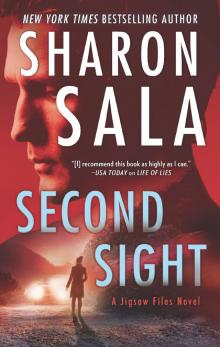 Second Sight
Second Sight Count Your Blessings
Count Your Blessings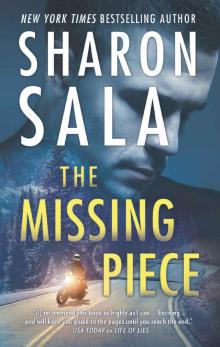 The Missing Piece (The Jigsaw Files)
The Missing Piece (The Jigsaw Files)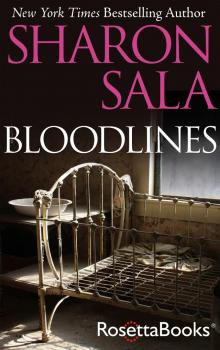 Bloodlines
Bloodlines Sudden Danger
Sudden Danger King's Ransom
King's Ransom Once in a Blue Moon
Once in a Blue Moon A Rainbow Above Us
A Rainbow Above Us Always a Lady
Always a Lady Touchstone
Touchstone The Whippoorwill Trilogy
The Whippoorwill Trilogy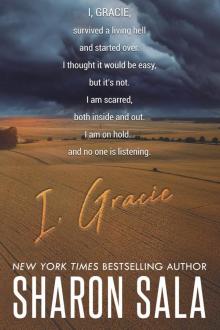 I, Gracie
I, Gracie Honor's Promise
Honor's Promise Rider on Fire
Rider on Fire The Gathering
The Gathering Don't Cry for Me
Don't Cry for Me The Way Back to You
The Way Back to You Swept Aside
Swept Aside Blood Stains
Blood Stains Chance McCall
Chance McCall Out of the Dark
Out of the Dark For Her Eyes Only
For Her Eyes Only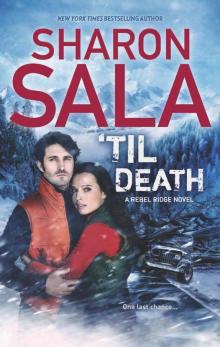 'Til Death (A Rebel Ridge Novel)
'Til Death (A Rebel Ridge Novel) Roman's Heart
Roman's Heart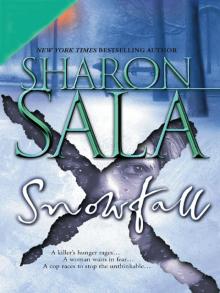 Snowfall
Snowfall Dark Hearts
Dark Hearts Mission: Irresistible
Mission: Irresistible A Place to Call Home
A Place to Call Home Betrayed
Betrayed The Lunatic Detective
The Lunatic Detective The Dove
The Dove Windwalker
Windwalker The Miracle Man
The Miracle Man The Curl Up and Dye
The Curl Up and Dye Familiar Stranger
Familiar Stranger Sweet Baby
Sweet Baby The Boarding House
The Boarding House Bad Penny
Bad Penny Remember Me
Remember Me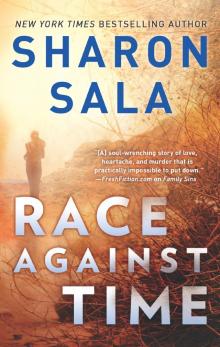 Race Against Time
Race Against Time The Dove (Prophecy Series)
The Dove (Prophecy Series)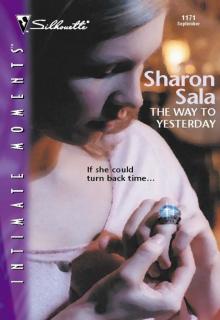 The Way to Yesterday
The Way to Yesterday The Healer
The Healer The Color of Love
The Color of Love Missing
Missing Next of Kin
Next of Kin A Field of Poppies
A Field of Poppies Cold Hearts
Cold Hearts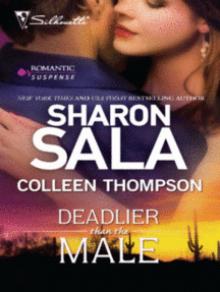 Deadlier than the Male
Deadlier than the Male Color Me Bad: A Novella
Color Me Bad: A Novella Lunatic Times Two: 4 (The Lunatic Life Series)
Lunatic Times Two: 4 (The Lunatic Life Series)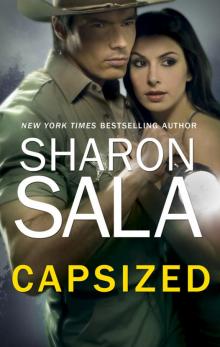 Capsized
Capsized Sympathy Pains
Sympathy Pains ROYAL'S CHILD
ROYAL'S CHILD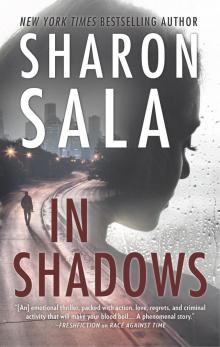 In Shadows
In Shadows 3, 2, 1...Married!
3, 2, 1...Married! Family Sins
Family Sins The Chosen
The Chosen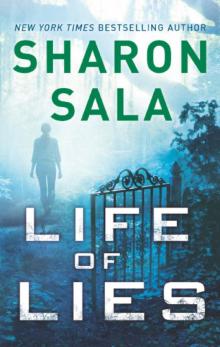 Life of Lies
Life of Lies Lunatic Revenge
Lunatic Revenge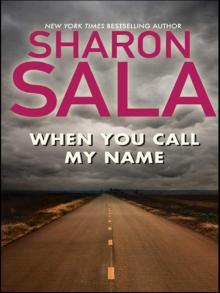 When You Call My Name
When You Call My Name I'll Stand By You
I'll Stand By You Saving Jake
Saving Jake Going Gone
Going Gone ANNIE AND THE OUTLAW
ANNIE AND THE OUTLAW Butterfly
Butterfly Cut Throat
Cut Throat Ryder's Wife
Ryder's Wife The Hen House
The Hen House Amber by Night
Amber by Night The Amen Trail
The Amen Trail Mimosa Grove
Mimosa Grove Dark Water
Dark Water Wild Hearts
Wild Hearts Blood Trails
Blood Trails The Warrior
The Warrior Shades of a Desperado
Shades of a Desperado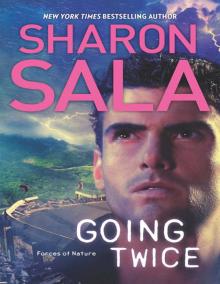 Going Twice
Going Twice A Piece of My Heart
A Piece of My Heart You and Only You
You and Only You Nine Lives
Nine Lives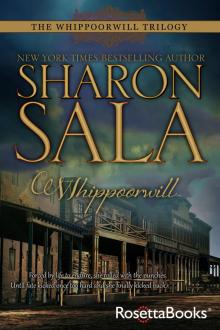 Whippoorwill
Whippoorwill